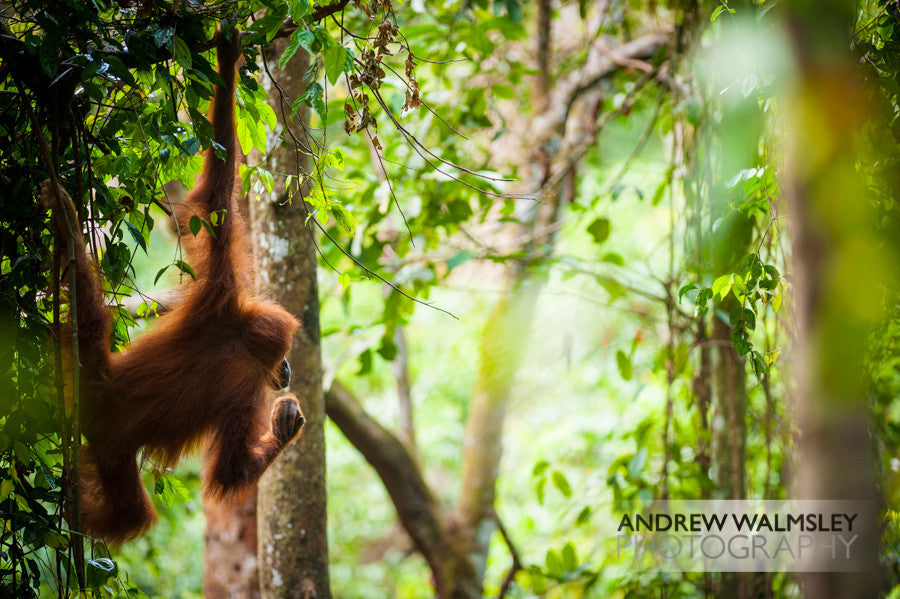In a reflection of our company ethos, we’re going to be posting one blog per month devoted to big issues affecting forests, trees, wildlife and people. We’ll cover everything from the large problems of deforestation in Indonesia to lesser-known tree-planting initiatives in tiny corners of Britain, bringing you stories from the people who are combating these globally important issues.
For the inaugural post in this series, we’re focusing on deforestation in Sumatra, where 7.5 million hectares of forest were lost between 1990 and 2010 and where some of the world’s most iconic species cling on in what remains of their habitat. Read on to find out who’s affected, why it’s happening, and what is being done to help.

Why are Sumatra’s forests disappearing?
Forest clearance for oil palm plantations and the pulp and paper industry means that primary forest is being replaced by monocultures or destroyed altogether. Though at first glance oil palm plantations look very much like forests, they are actually eerily silent, lifeless places – no plants growing beneath the trees, and no birds or primates moving through the canopy. Oil palm plantations the world over are created quickly and continuously at a total rate of 300 football fields' worth of forest clearance per hour, feeding a global demand for cheap oil to put in food products, cosmetics and household goods. A lot of deforestation is carried out illegally, or by exploiting loopholes in the law to avoid environmental destruction being too easily discovered.

Who does this affect?
Probably the best known victim of deforestation in Sumatra is the Sumatran orang-utan, which is classified by the IUCN as Critically Endangered. Sharing its shrinking habitat are rhinos, tigers and elephants - all also Endangered or Critically Endangered – and a multitude of other species of plant, reptile, bird, invertebrate and mammal which need forest to survive. These species go into sharp decline when rich, diverse forest is destroyed. Animals which can travel over great distances end up in conflict with humans when they move onto farmland or start relying on crops or livestock to feed themselves. Other species burn when fire is used to clear forest, or cling on in small populations in the fragments of forest which remain. As important breeding animals die or become isolated from their conspecifics, population recovery gets slower and slower, and species face even more of a fight to survive.
It’s not only wildlife that suffers, though. People are also badly affected by reduced access to clean water, scarcity of staple foods such as rice, and economic problems caused by the conversion of land to monocultures in which nothing else can grow. Human rights abuses are also rife in and around many oil palm plantations, including the discovery of child labour in some areas.

What is being done?
NGOs such as Orangutan Information Centre, Sumatran Orangutan Society, Sumatran Orangutan Conservation Program and 21st Century Tiger all work tirelessly for a safer future for forests, people and wildlife in Sumatra. With projects ranging from reforestation and orang-utan rescue to community forestry and local conservation initiatives, these small groups of committed people are doing everything they can to help in what can often seem like hopeless situations. They are making a difference, though, and are supported from around the world by lobbyists, volunteers, fundraisers and people who vote with their money and avoid products that come from a background of conflict.

What can we do?
- Shop carefully. As mentioned above, our consumer choices can be a very powerful tool. Many experts advise against a complete boycott of palm oil, as its prevalence in products means it is not going to disappear. There will always be a demand for vegetable oil to use in everyday products, and growing it, whether it is palm oil or something else, will still take up a lot of land. The best thing we can do is to look for the CSPO certificate on the products we buy, and contact companies who make products we love - but who don’t use sustainably-sourced palm oil - to ask them why they’re not changing their ways. If their sales are under threat, and enough people tell them, they’ll act. We can also avoid timber products (everything from chairs and tables to the paper in your printer) that are drivers of deforestation, by looking for the FSC logo on everyday items we buy, like toilet paper, kitchen roll and furniture.
- Support the organisations working in Sumatra. You can plant a tree through Sumatran Orangutan Society, or fundraise in their name. Orangutan Information Centre and Sumatran Orangutan Conservation Program use donations to rescue infant and adult orang-utans who end up stranded in oil palm plantations, and release them back into the wild. Wildcats Conservation Alliance run exciting challenge events to get their supporters adventuring while raising funds for their work. We can also help by following these organisations on social media and sharing your posts with friends. Knowledge is power, and we can make a big difference by helping to raise awareness.
- Stay informed. Keep an eye on news and social media pieces about the situation in Sumatra. There might be a new petition taking off, or a crowd-funder for a vital piece of equipment that just can’t wait. You might find that a product you love is under scrutiny for poor environmental practices, or that another is now all-clear after changing its ways. There’s a lot of information out there, and doing your little bit makes more of a difference than you think.
Deforestation in Sumatra is a problem we all have influence over, whether we want to or not. It is also a problem that impacts on global food production, water security and environmental stability; not something that just happens too far away to worry about. Don't be put off by the scale of the problem. We can all do something little, and if we do it together, it will all add up to a lot.
For more environmental stories, Follow our #EchoChamberDisruption blog series. Together we can change the world.


